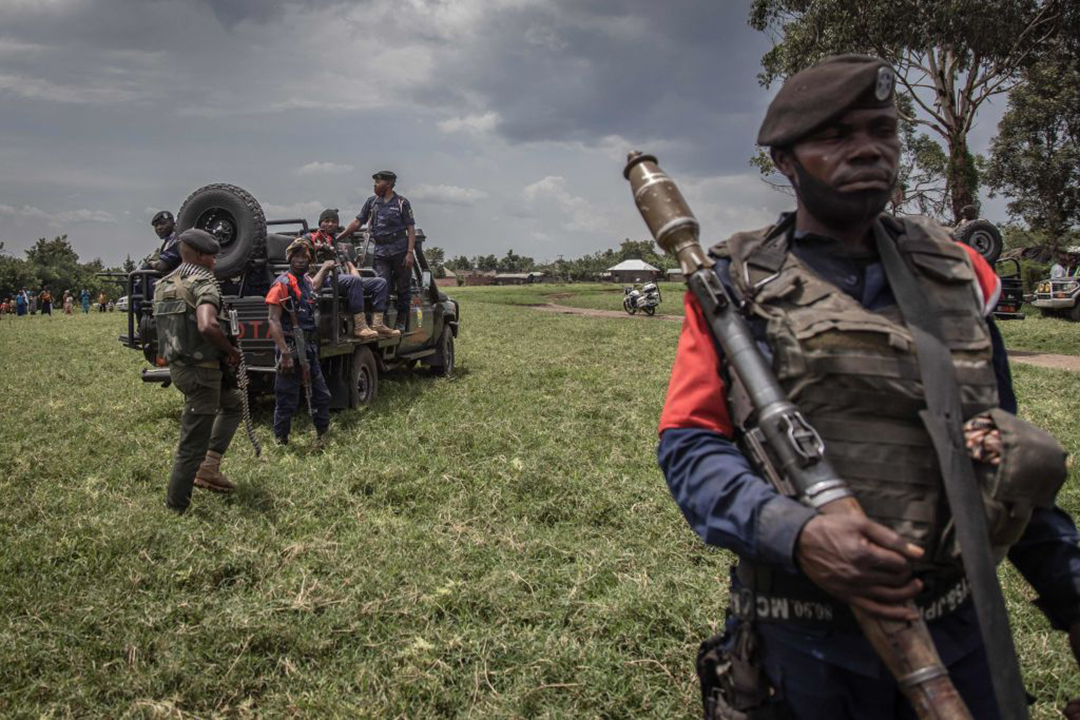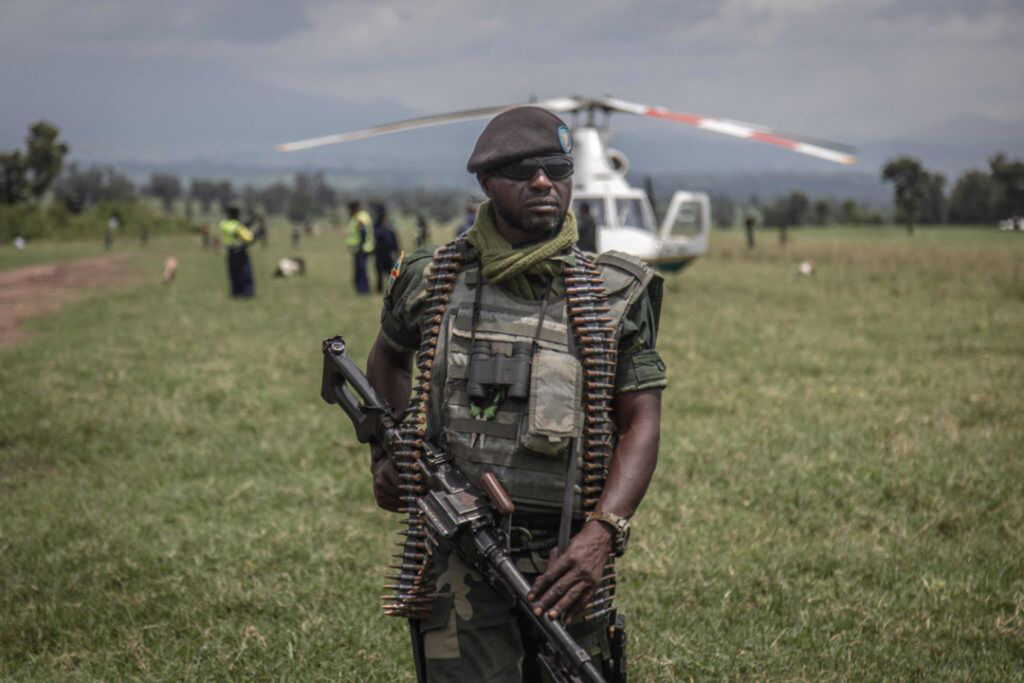ADF STAFF
The Democratic Republic of the Congo (DRC) officially joined the East African Community (EAC) as the regional bloc’s seventh partner state on March 29.
Less than a month later, the EAC voted to establish a regional military force to address the pervasive problem of armed groups that have plagued eastern DRC for decades.
The EAC voted to “accelerate the establishment [and urgent deployment] of a regional force to help contain and, where necessary, fight the negative forces,” it said in an April 21 statement.
The leaders agreed that all armed groups in the DRC must disarm and “participate unconditionally in the political process to resolve their grievances. That failure to do so, all Congolese armed groups would be considered as negative forces and handled militarily by the region.”
More than 100 armed groups operate in the dense forests of eastern DRC along the border with Uganda and Rwanda.
About 70 armed groups agreed to a cease-fire in the South Kivu province in July 2021, but violence in the region remains a point of contention among EAC nations. In recent years, Burundi, DRC, Rwanda and Uganda have accused each other of supporting rebel forces operating in eastern DRC.

Kenya and Uganda already have troops fighting rebels in eastern DRC. Rwanda wanted to send troops in 2021, but DRC politicians rejected the proposal. In the new EAC agreement, Rwandan Soldiers will be part of the regional force.
One of the United Nations’ largest peacekeeping forces, the United Nations Organization Stabilization Mission in the Democratic Republic of the Congo, also has been in DRC for more than two decades, but thus far it has not quelled the violent rebel groups that it estimates have killed thousands and displaced millions.
Although the armed groups it asked to negotiate with were not identified by the EAC, local reports identified CODECO and M23 among them.
The EAC is demanding other groups with foreign links — include Forebu, the Burundi insurgents, Mayi-Mayi, Democratic Front for the Liberation of Rwanda and the National Congress for the Defence of the People — to leave the DRC.
The Allied Democratic Forces, with its ties to the Islamic State, is considered a terrorist group by the DRC and Uganda. It was not among the armed groups that were invited to begin peace talks on April 22 in Nairobi, Kenya.
No one showed up to the meeting because of “logistical reasons,” but representatives of 24 armed groups appeared at another on April 27.
“Without laying down weapons and forging an unbreakable national compact to secure the DRC, the fruits of prosperity — which you deserve — from the teeming rich endowments will remain elusive,” said Kenyan President Uhuru Kenyatta, who led the meeting and spoke to the participants as the EAC chairman.
“Without working towards unity and cohesion among all the people of the Democratic Republic of Congo, every separate section will forever remain a loser,” he said. “The DRC deserves to claim and assert its rightful place in Africa and the world at large. This is just but a first step towards that attainable goal.”
Although the dialogue was productive, some critics were unmoved.
Akilimali Chomachoma, a political commentator in North Kivu, said eastern DRC remains a quagmire because of a lack of governance.
“Fifty percent of these groups surrendered voluntarily to the FARDC [the DRC’s armed forces] to make way for peace,” he told the East African newspaper. “But they regrouped after the failure of the DDR [Disarmament, Demobilization and Reintegration] process. The cantonment centers where they were going to stay for three weeks ended up holding them for two months on average, without food and no sanitary facilities.
“All these armed groups returned to the forest and the localities they controlled because the army did not deploy in those areas to boost security. The failure of the disarmament and demobilization process has facilitated the rapid development of armed groups.”
Other experts believe negotiations are a step in the right direction.
Angela Muvumba Sellström, senior researcher at the Nordic Africa Institute, said rebel leaders would be wise to heed the united front put forth by the EAC.
“The armed groups should take up the option of a negotiated political solution, their options for continued [armed] activities, are narrowing,” she told The East African.
“There are also many parallel and related political and security developments in the past months that suggest this [dialogue] may be a big turning point.”

